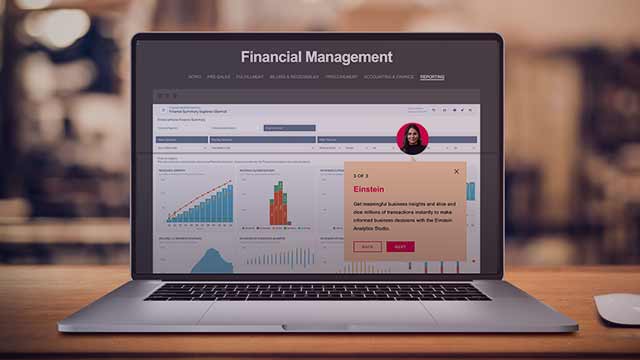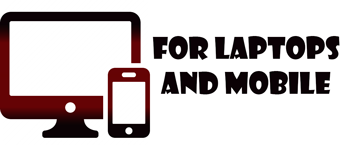| Disclosure: The links on this page are "Affiliate Links" and while these are shown at no costs to our viewers, they generate commissions for our website(s) |
What is ‘the cloud’?
In recent years, there has been a surge in the popularity of cloud-based IT systems, including cloud-based accounting systems. Most of us have heard talk of ‘the cloud’ but don’t actually know what it means, so let’s start with a quick overview.
When we talk about ‘the cloud’, we’re referring to on-demand computer services or data storage, usually over the internet. These services are generally based on a pay as you go or subscription payment model, rather than buying a software or hardware package and maintaining it yourself, and are hosted and maintained outside of your business.

What is ‘cloud-based accounting’?
Cloud-based accounting packages are a great application of cloud technology, and their popularity is growing all the time with small businesses, particularly those who don’t employ an in-house accountant or bookkeeper.
Cloud software can be used for invoicing, dealing with bills and expenses, payroll, taxes, reporting, and bank reconciliations, among other functions. Using this kind of accounting software means that all of your financial data is stored online – in the cloud – meaning you can access it anywhere, anytime, and from any device with an internet connection.
Cloud systems work in real-time – meaning they update automatically – and there’s only one version of the data, meaning wherever you access it from, you will see the same thing. If you have advisors or colleagues, you can give them access to the system, and they can look at the same information as you even if they are in a different location – facilitating remote working and collaboration.
Examples of cloud-based accounting packages used by small businesses include Xero, Intuit Quickbooks, Free Agent, Wave, and Sage Cloud Accounting.
What are the benefits of used cloud-based accounting software?
When compared to traditional accounting software, cloud-based accounting software can be much cheaper and easier to manage. Rather than paying for a software package that needs to be regularly maintained, updated, and backed up, software updates and improvements are managed by the provider and included in your subscription. Your data and settings are backed up automatically as part of your subscription, so if your hardware fails, all is not lost!
A cloud-based package can also provide a useful repository for your financial documents, meaning you don’t need to store them elsewhere – most have the functionality to store documents such as receipts, invoices, and bank statements. This can help you in your quest for a paperless office, particularly if space is at a premium.
Subscription models can often work out cheaper, and in many cases you don’t need to pay more to give access to additional users, unlike some of the more traditional licensing arrangements. Most providers are keen to showcase their product by giving you a free or reduced-price trial period, which is a good way of finding out whether a particular package works for you.
For many small businesses, using a cloud-based accounting system may be their first-ever foray into using an accounting system. Perhaps up until now, you’ve been reliant on an excel spreadsheet, an old fashioned cash book, or maybe even every bookkeeper’s favorite – the shoebox of receipts and invoices handed to them at year-end! If you’ve helped make things easier for your accountant or bookkeeper, they may well charge you less to prepare your annual accounts.
Most importantly, using a cloud-based accounting system can help you as a business owner to get to grips with your finances. It can give you greater visibility over your finances – what invoices are outstanding, what bills you are due to pay, your current cash position, and what your profitability looks like for a given period.
You can follow up unpaid invoices quickly and easily, and this can even be automated, and by having a standard template, you can make sure that important information such as payment terms, due date, bank account details are always included in a consistent format. You will also have the functionality to track changes in payment behavior from your clients.
Using cloud-based software can also help you in your dealings with the authorities – the tax authorities tend to prefer chronological invoice numbering, which is an automatic feature, and in many jurisdictions including the US, cloud-based systems can facilitate the online filing of sales tax returns.
Advanced functionality
Some businesses only use cloud-based packages for the absolute basics, but as you become more confident with the package you’ve selected, you may wish to explore some of the clever features that your provider has built into the package, such as budgeting and dashboard-based reporting. Many cloud-based packages also integrate with third-party apps allowing for inventory management, project management, or CRM systems to interface with your accounting system. You’ll find that most providers have online resources to help you learn about this functionality, and there is usually an online community of enthusiasts who will also provide support, particularly for real-life problems that they have also encountered.

Is my financial data safe?
Like online banking software, cloud accounting software is encrypted, meaning it can’t easily be intercepted by outside parties. As with any sensitive data, it’s worth putting a few rules in place:
- Regularly change your own password, and ensure that others with access to your business’s information are doing the same
- If a colleague leaves the business, or you stop working with an advisor, deactivate their access straightaway
- Be careful when accessing your data over open wifi networks, such as in coffee shops, as these are generally less secure than the protected networks in your workplace or home, and make sure anyone else who has access to your system is aware of the risks
-
Where the software provider offers two-factor authentication, use it for extra security

Final thoughts
In summary, cloud-based accounting systems can be a cost-effective and user-friendly way for small businesses to access world-class accounting software, enabling them to get greater visibility of their business’s financial position and to collaborate effectively with their colleagues and advisers. It’s certainly worth exploring the different packages out there, talking to your accountant or bookkeeper to see whether there’s a particular package they recommend and signing up for a trial to see if it works for you.
Written exclusively for our company by Sally Wood






